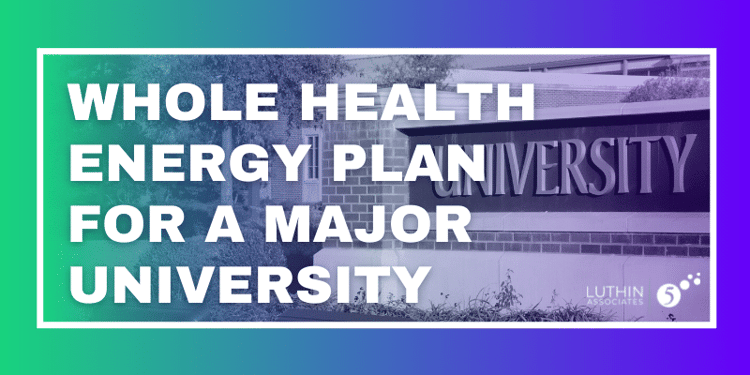
A major university approached Luthin Associates to develop a plan to reduce its greenhouse gas emissions by 30% over a ten-year period. Luthin worked directly with facilities, financial services, students, and faculty to create a sustainability committee. The committee developed a Whole Health Energy Plan that would enable the customer to meet its goals and increase the sustainability of its campuses, which comprised more than 40 buildings and over 3 million square feet.
The plan was developed over many years and with several discrete steps. Luthin's assistance included:
-
Managing a Request for Proposal (RFP) to procure auditing and retro-commissioning services from an energy engineering firm. The study also included evaluations of Demand Response.
-
Preparing a study to evaluate the environmental and financial impact of converting heavy oil boilers to dual-fuel interruptible natural gas.
-
Evaluating the potential to achieve Leadership in Energy and Environmental Design (LEED) certification for three new buildings and retrofit.
-
Evaluating the impact of a Combined Heat and Power (CHP) plant that would be sized at the campus thermal load.
-
Managing the implementation of a solar photovoltaic (PV) installation.
-
Identifying the potential for further solar and energy storage projects.
-
Assisting in procuring significant energy conservation incentives and public grants.
-
Managing an RFP to procure demand response services.
-
Assisting the university in obtaining positive publicity.
As with most Whole Health Energy Plans, the work continues and the customer expects to reach its goal at the conclusion of the ten-year period. After the first five years, the client had already achieved about 70% of their goal.




